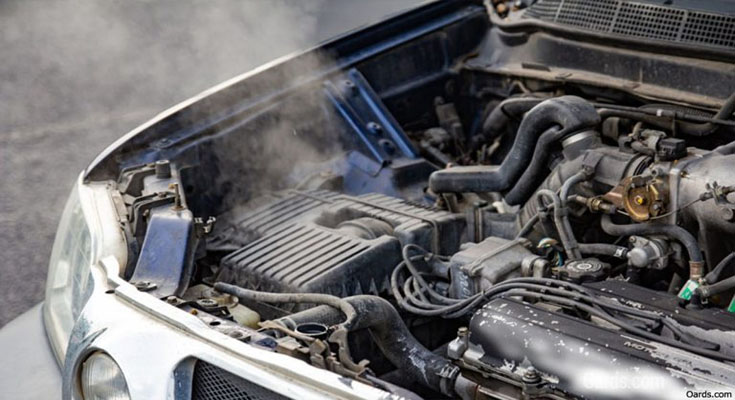Your car’s engine operates at a regularly high temperature. The combustion process that gives the power necessary to move your vehicle is the outcome of a large number of explosions per minute that take place inside the cylinders. The chemical and mechanical power made also contribute to the increasing temperature. Maintaining it beneath control is crucial. If the heat rises too high, your engine will overheat, potentially causing key harm that should be pricey to repair.
This short article will offer an introduction to some popular causes of an overheating engine. We’ll commence with low oil levels before taking a look at leaking head gaskets, coolant leaks, and failing water pumps.
Low Oil Levels
Motor oil is essential to the life of the engine. It delivers lubrication for the moving parts and helps to transfer heat away from the cylinders. If there is certainly an insufficient amount of oil inside the assembly, the moving parts will generate excess friction as they rub against each other. That friction would not only trigger harm for the moving parts but would also create intense heat. The temperature would continue to rise, placing all of the elements in danger of further harm. This can because it’s significant to check your oil level just about every two weeks.
A Leaking Head Gasket
The head gasket sits involving the engine block and the cylinder head. Typically, it maintains a robust seal that prevents coolant from leaking into the individual cylinders. If the engine runs too hot, the block and cylinder head may well knowledge thermal expansion. As they expand, they will crush the head gasket and thereby, break the seal.
In the event the head gasket permits coolant into the cylinders, the entire assembly can overheat. When the root cause of your leaking gasket just isn’t identified and fixed, replacing the gasket may perhaps only represent a short-term option; it’ll most likely leak once again.
Coolant Leaks
Coolant plays an essential function in regulating the heat around your engine. It carries heat in the assembly for the radiator. The problem is, you will discover numerous points along the way that can kind leaks, like the hoses, head gasket, water pump, plus the radiator itself.
The best solution to uncover leaks all through the cooling system is always to stress test everything. If your car’s cooling system is working properly, it needs to be able to keep approximately 12 psi to get a quarter of an hour without losing any pressure. In the event you notice a loss in pressure, verify the head gasket and cylinder block. Each is a prevalent point of coolant leakages.
Faulty Water Pump
Your car’s water pump is responsible for pressurizing the coolant and sending it for the engine and throughout the cooling system. In the event the component fails, it’s going to protect against sufficient coolant from circulating appropriately. Which will result in the assembly to overheat.
One of essentially the most typical factors a water pump fails is since the impeller vanes turn into eroded or loose. This happens normally with impellers that are produced of plastic. Both events can avert the impellers from turning, which hampers coolant circulation.
Failing Thermostat
Normally, the thermostat opens anytime your engine reaches a specific temperature. By opening, it makes it possible for coolant to circulate in the radiator to the assembly. In the event the thermostat fails to open, the coolant might be unable to flow to the engine and therefore, lower its operating temperature. Overheating is often the most likely outcome.
Heat is just not, in itself, negative for your car’s engine. In truth, the greater its operating temperature, the more efficiently it runs. Nevertheless, there’s a ceiling previous in which the pistons and cylinder heads start off to melt. Plus, if the assembly lacks adequate oil to lubricate the moving parts, friction can create higher temperatures and potentially lead to overheating.





